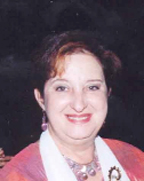Presidential Advisor on Governance, Gail Teixeira gave a misleading answer to the United Nations Human Rights Council in relation to compensation for the 15-year-old boy who was tortured by police in October last year.

Her answer was recorded as part of the UN’s Universal Periodic Review in Geneva, Switzerland last week and when questioned by Stabroek News on this yesterday she denied that she had said that the boy was compensated.
In answer to concerns raised by Canadian Ambassador Jeffrey Heaton, Teixeira said “The young man (Twyon) Thomas, a most tragic event. It has been openly investigated and the perpetrators have been brought to the court and have been charged and also compensation and counseling and medical treatment for the patient”. Her answer implied that there was compensation for Thomas when there hasn’t been any and there is a pending court matter on this.
Contacted for clarification by this newspaper, Teixeira denied that she had said that Thomas was compensated. “I know what I said and I didn’t say he was compensated”, she said, adding that “there is a fault somewhere” in the webcast viewed by this newspaper.
Thomas has filed a lawsuit against the Attorney General, the Commissioner of Police and the two ranks accused of torturing him, asking for $40M in compensation. The matter is currently ongoing in the High Court and when contacted yesterday his attorney Khemraj Ramjattan said that he was unaware of any compensation being paid. He said that the Attorney General filed an affidavit in the matter recently and nothing of the sort was mentioned. “I don’t know anything about that and my court case is ongoing”, Ramjattan said. The attorney said that if any money was paid, it was probably for medical expenses but he is not aware of any compensation being paid.
Teixeira when pressed on her statement further said that she was answering many questions at the time before the council and maintained that she did not say Thomas was compensated. “I am not aware of me saying that”. When the transcript of the audio was read to her she said that there was a full stop in between. “I cannot say (he was compensated) because I do not know that”, she said.
Through the United Nations Human Rights Council’s UPR, the human rights record of each state is extensively reviewed every four years. Each member state is required to produce a national report in accordance with a UN Human Rights Council resolution and Guyana complied but without widespread local consultations. Minister of Foreign Affairs, Caroline Rodrigues-Birkett led Guyana’s delegation to Geneva. Last Friday the Working Group adopted the report on Guyana.
Heaton in his statement before the council said Ottawa was concerned with reports of the excessive use of force by security forces and the recent documented torture of Thomas by police officers. Rodrigues-Birkett had said earlier in the session that in relation to Thomas’ case in October 2009 and “the so called Phantom Squad of 2002-2006” the Government of Guyana always had a zero tolerance policy towards torture. She said two police ranks have been charged in Thomas’ case and the Doctor involved in the case has been censured by the Medical Council of Guyana. “Through proper leadership and supervision at all levels of the police force particularly at the station precinct level coupled with the installation of security cameras will monitor police interrogation methods so that such cases as that of Twyon Thomas will be stopped”, she had said.
Meantime clarifying issues as it relates to the “phantom squad” and the excessive use of force in a violent crime wave, Teixeira said “maybe we were not clear in our report because as Guyanese writing about our own situation we may sometimes assume certain things”. She said that the violent crime wave in Guyana between 2002 and 2008 “was led and perpetrated by (an) extremely violent gang that used AK-47s as their preferred weapon”. Noting the weapons stolen from the Guyana Defence Force as it relates to those issues, she said there were several gangs.
Teixeira said that one went into communities and killed people, recalling the Lusignan massacre in 2008 where five children were killed. The phantom gang, she said, “is the name given to persons that may be connected to the drug lord that is right now before the court in the United States and has been found guilty”. She said that they are two different categories of people and both are under investigation. She said that as Rodrigues-Birkett pointed out in relation to the phantom squad, one of the major problems in investigating is the lack of informants coming forward.
In Geneva last week, Canada and the United Kingdom called for independent investigations of the phantom squad.
Rodrigues-Birkett and Teixeira are scheduled to hold a press conference today to report on their appearance before the council.




